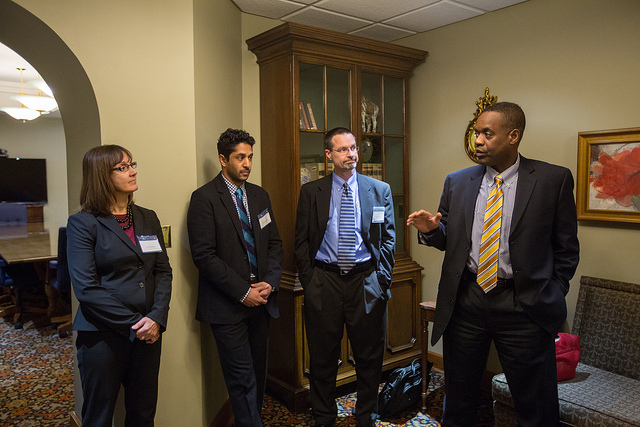After several years and numerous legal battles, a federal judge today affirmed that a series of pension reforms enacted by Baltimore in 2010 were constitutional.
But the judge, Barbara Milano Keenan of 4th U.S. Circuit Court of Appeals, left the door open for unions to again challenge the reforms. This time, unions will have to bring a different legal argument to the table.
Quick context: In 2010, Baltimore overhauled its police and fire pension systems and implemented reforms—higher employee contributions, higher retirement ages and lower COLAs—which were projected to save the city $64 million annually. Details from the Baltimore Sun:
Under the mayor’s plan, firefighters and police have been required to increase contributions to the pension fund — now 10 percent of their salaries. Many officers were told that they would no longer be able to retire after 20 years, but would have to stay on the force for 25 years to receive their pensions. Retired workers also lost what was called the “variable benefit,” an annual increase tied to the stock market. Instead, the youngest retirees receive no annual increase through the variable benefit, and older retirees receive a 1 percent or 2 percent annual increase.
The bolded section is key. The first legal challenge against the reforms centered around the decrease in COLAs. Unions argued that the change was illegal because Maryland, like many states, treats pension benefits as contracts that cannot be impaired.
Most states sidestep the contract issue by applying reforms to new hires only. But Baltimore had decreased COLAs for retirees as well.
So, in 2012, a District Court ruled the change illegal, saying “elimination of the variable benefit constituted a substantial impairment of certain members’ contract rights, and that the impairment was not reasonable and necessary to serve an important public purpose.”
The ruling today overturned the District Court’s decision and re-instated the COLA decreases. The logic behind the ruling, from Reuters:
The appeals court said the reform was a “mere breach of contract, not rising to the level of a constitutional impairment or obligation.”
It also dismissed the notion that allowing the reform to go through would give a city “unfettered discretion to breach its contracts with public employees,” because of protections in Maryland law.
“This contention lacks merit because, under Maryland law, the city is only permitted to make reasonable modifications to its pension plans,” wrote Keenan. “Any reduction in benefits ‘must be balanced by other benefits or justified by countervailing equities for the public’s welfare.’”
But the judge said unions could change their argument, and they might have another shot at overturning the legality of the reforms in court.
Judge Keenan said that unions should argue the city took “private property for public use, without just compensation.”
And unions do plan to keep fighting.
“We have to get with our attorneys and decide which way to go, whether it’s federal or state,” said Rick Hoffman, president of the firefighters union. “I personally think this ruling strengthens our stance.”
Photo: “Ext-Night” by Basilica1 Licensed under Public domain via Wikimedia Commons


